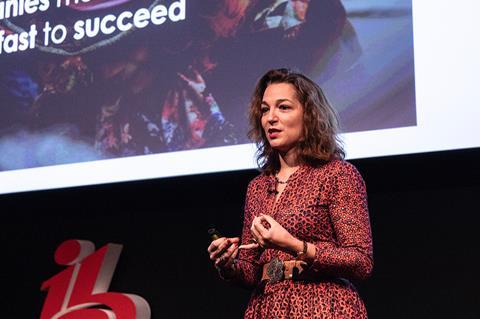IBC2018: More innovation is required by TV industry to grab the attention of Millennials, Generation Z and Tweens, warns Havas exec Maria Garrido.
The TV industry must spend more on innovation if it is to survive growing competition in the digital world, warned Maria Garrido, Chief Insights & Analytics Officer at global agency Havas.

“The TV industry isn’t dead –yet! It still has 34% of the pie in terms of ad spend but this will go down to 31.3% in 2021 while platforms such as mobile will grow from 30.5% – up from 19.2%.
Garrido, who kicked off the IBC Audiences conference track with a session looking at how traditional media can compete in the digital space, said that the good news for TV is that its big brands are still meaningful. “In the UK the BBC is a top brand ahead of Apple and Amazon – and in the US brands like HBO or Nat Geo still have a strong reputation.”
But TV is facing a slippery slope warned Garrido, who is also CEO of Havas X, the agency’s innovation division. “If you take out all live and sports from live TV in the US – the total audience drops 19%. So bidding from Google or Amazon for the World Cup or Olympics is a real danger.”
“More innovation is required to grab the attention of Millennials, Generation Z and Tweens. With Generation Z you have 8 seconds before they are on a mobile or tablet. The reality is that traditional broadcasters are not producing enough new forms of content,” said Garrido, who pointed to the Disney acquisition of online content network Maker Studios as the way forward.
“Content is king – but the kind of content that Millennials, Generation Z and Tweens are looking for are different. They spend a lot of time on social media platforms, tailored YouTube video and avoiding ads.”
There is also the challenge from players such as Netflix which is expected to make a $12-13bn investment in content this year, said Garrido.
Discoverability is also a big issue for content players, said Garrido. With Voice also growing rapidly, it’s easy to see how Amazon could move into a dominant position in the content market by controlling the discoverability of generic content through digital assistants like Alexa.



























No comments yet